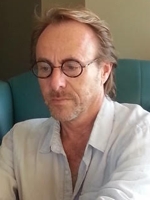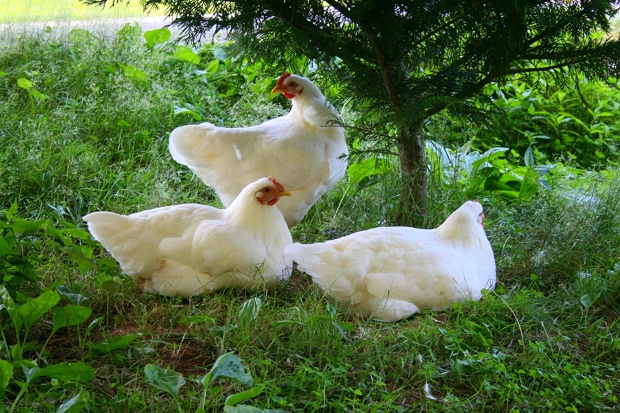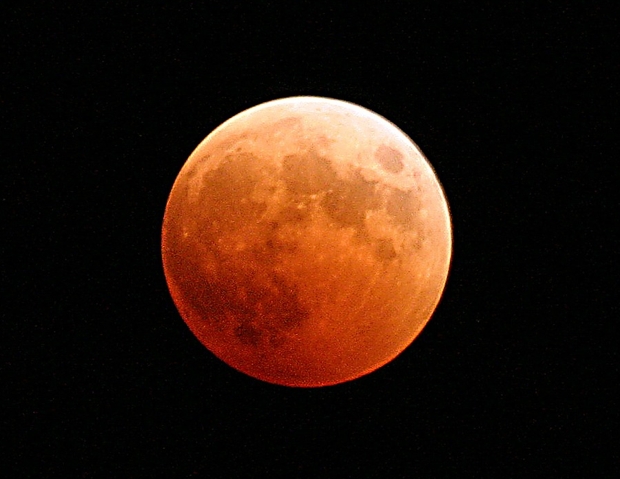Poems by Mark Tredinnick
Archives: by Issue | by Author Name

Paradise Eclogue
by Mark Tredinnick
From Canary Fall 2015
Mark lived for many years in the Blue Mountains, sandstone canyon country west of Sydney, Australia. After that he lived (and wrote many of these poems) in pastoral country on the banks of the Wingecarribee. In the last year or so he's lived in Newcastle, a steel city on a working harbour at the mouth of the Hunter, and just of late he's settled in Picton, a small town on the Wollondilly.
ONCE I LAY in the lassitude of summer,
rocking the sky’s slow boat,
looking up the skirts of a sorority of poplars. The wind rose
and the grey leaves panicked
in a silver school and swam south,
But not far south, and the sky above
was a lapis scrim of unbroken
thought. Benazir Bhutto had died on the morning of that day,
all over the world, and I felt guilty
even being here. But there was the gentle sky
And it was going nowhere and blaming no-one fast—a vast intelligence
canvassing nothing special,
drawn taut and candid and empty
over the whole carnal world. A charged void, the flip side of knowledge,
The other side of pleasure, and there could have been nothing wrong
in the world—nothing at all—
but then the wind stirred, and I fell
from the sky’s sly boat back into the hammock and remembered
All of them. But Paradise, in my experience,
is only herself for minutes at a time.
Outside of that, she’s the possum shitting in the ceiling above you;
she’s your man and his children
from his first time round; she’s the house
and the copperhead under it,
And the mortgage over it, and she’s the parrots
flaring at dusk. Most of it is shit,
my doctor said to me once, a man whose love and medicine had failed
to save his wife, a man caring for three teenagers now.
Hating it and loving
Them. Most of love is shit. But this is the best
I will ever have been, I was thinking,
hanging there from the sky; and that second, I stopped being it
and start missing it, and the wind fell and rose again.
And later my son found me
And fell into the hammock with me,
the very cradle of his world.
I just want you, the boy said, as though I really were something.
I rocked with him a while,
and then we stepped down and walked back
Into the lengthening afternoon
of the rest of our days. And the morning after,
I woke and saw that the word had got out early and written itself all over
the place, especially in the east but also
on the leaves of the grasses, in colours
The holy spirit would have been proud of
back in the old days,
before she unstopped the world’s bottle and seeped
like some profound and original sin
well into next week.

© Mark Tredinnick
Poem in April (Walking My Name Back Home)
by Mark Tredinnick
From Canary Spring 2016
I set off walking south on the shoulders
Of these high cliffs, through kissing gates and over stiles, when summer
Was a crude suggestion yet among the broom and gorse.
The winter
That did not want to end was hedging
The heath, and the geology beneath it was heroic—its syntax
Tortured, its story lines long and unsettled by tides
And asides, its attitudes violent,
Its voicing portentous—and reading it was as difficult, the going as slowing, as Beowulf
In the ancient tongue. The promontory that shields
The town from the sky was stricken
With bracken and blighted with daffodils, and it stood as gaunt and lichened
And slant as a headstone in a churchyard. In my overcoat,
Which flapped and yawed
In the heartbroken wind, I felt like an eight-year old girl
Lost inside her mother’s dress. Below me, though, the sea was loosing
Perfect sets against the Secret Seven shore—Foxhole,
Raven’s Beak, Cleave Strand,
Hallett’s Shoot, Smugglers’ Run, Tremoutha Haven, Cambeak, The Northern Door,
The Strangles—and the wind kept up its perpetual complaint.
The birds—blue tits, wagtails, jackdaws in their jaunty
Rat-packs, choughs waking rough, magpies flying kites, a raven or two and everywhere
The plangent gulls—were telling fast the same story the rocks tell
Slow, and in between the sea,
Marbled exactly the same way the rock is strung with alabaster,
Peddled and piped and played like an organ in a chapel—Bach, Wesley, Handel,
Parry, and Harris’s “Flourish For an Occasion”—and this day was
Occasion enough. The wind, a faithful elder
Of the parish, long ago decrypted the flinty geomorphology of the shoreline and punched holes
Through High Church flanges and installed windows there
In the greater glory of the God. The farm buildings
And mills of the old dispensation, when I came among them, crouching in the lee,
Cradled in the stench of silage and the baked bread odour
Of ploughed fields, were as different
From the ground they stood on as a rock is from a stone, or land is
From landscape. The shingle roofs of Trevigue, for instance, ran a warp as wild
As the strangled strata of the scarp behind the strand
Beneath its feet. House torques
The same way home torques here, each dwelling the same telling as the stones. And I walked
My name down to its bones that day
In the glamour of the sunshine and in the clamour of the shade,
But I have no idea if what I felt as I closed in on my beginning again was the ecstasy
Of exhaustion, or arrival. My name lives here, but I do not. There’s a song
Going on as long as the sea, and I am the words
It’s forgotten. Home is the ground the distance sometimes makes up
On me. And crossing the bridge at the end of that homespun myth of an afternoon
Of the world, I startled a kingfisher dipping the skinny brook and she
Dropped her book and flew down-
River, stark in her sly grog blue and white togs, and her flight was a race the same shifting shape
As the tongue-twisting bed she’d been singing.

© Mark Tredinnick
Reading the Entrails
by Mark Tredinnick
From Canary Fall 2015
WE WOKE to white feathers under the orange tree
and the door of the coop aghast.
Our last two hens, those yogis, martyred. Unhappy augury on polling day.
All morning the weather mumbled its sombre oracles.
And I stood within them,
handing out how-to-votes and hoping the birds were the last thing we had to lose
to pay for deliverance this night.
But only the damned are certain.
Well, it turns out the fox just got lucky
and the chooks were just dead
and none of this was a metaphor for anything. It turns out
we didn’t put the fox back in charge of the chookhouse.
You lose enough of what you love, you learn
to bed your virtues safer down
or wake to find them savaged.
It turns out this is just the way
the syntax of the real world runs,
implying one thing, meaning at once another. Meaning everything
ends, the good with the bad. The whole world, it turns out, is a metaphor,
and nature is a blind god’s prophecy.
The hens were innocents; they were also
the regime and they were our better selves.
The last thing we have to lose.

© Mark Tredinnick
Red Moon Eclogues
by Mark Tredinnick
From Canary Fall 2015
I
Every year the moon inches away from us. In time she’ll swim too far out
to anchor us at our habitual angle to the sun, and that will be the end
of the well-tempered and recursive wildness
that conceived and suffered us,
and that will be the end of us. We have just two
billion years to thank her for our time here. Eternity has a use-by date
II
But it’ll be up long before that, and in the meantime,
I sit on the cold step of the cowshed and watch the world throw its shadow
on the moon like a horse blanket;
in the meantime the moon reddens
in the refraction of all our dawns and sunsets, in a kind of transfigured cosmic
smog. An apocalypse that lasts three hours until it’s time to go to bed.
III
And in the meantime on the floor of my shed, blue planets sing in the hands
of children as they once sang in war. Two small worlds forged to cry terribly down
like creation unravelling upon one’s foes now
make a peaceful clangour on my secular desk.
One spins from its orbit and quakes and chips its cerulean shell on the floor
of heaven. The tectonics of play. We are loved like this, and this is how it ends.
IV
I’m arguing a lot with death these days. And last night I found myself
in court poised to clinch the case against the absurdity of life.
Certainly, this was sleeping and certainly
I was dreaming and I’d been losing the thread,
but all at once I saw where my argument must run, and I was running it there
when my small boy cried and woke me and I went to him and now I’ll never know.
V
Spring now, and the river has drawn back her bow. The lark ascends
from the cd-player, and black ducks sip brown ditchwater in the yard.
Everything’s in bud or leaf, last of all
the silver poplars and the Osage Orange,
trees flaring even now in the backyard of the childhood of my friend, the poet,
the poet’s son. The world happens twice. Draw the linen string taut and shoot.
VI
One lives in paradox. Debussy plays; trucks flounder past like gods
who’ve lost control of their machines. In between one makes one’s life up.
The sound is the price you pay for the sight
that meets you every morning and half
of what you paid for the house. The shed puts the perfect sky in her pocket,
and possums rut in the roof. Eternity is in rehearsal, and this is its soundtrack.
VII
Brad mows an acre an hour. A general at ease on his machine, a banker
in overalls, he’s rationalized our small republic on one tank of gas. And this now—
cutgrass at four o’clock—is how
hope smells. Some days I can see no way out:
the body of the world in entropy. But today I sit among the ruins
of the afternoon, and I cannot see how it can’t all go on forever.
VIII
Meantime the moon has made herself new again, and there has been rain.
The Marulan hills, which had almost forgotten the taste of the word,
are spelling green again this afternoon,
and there’s water in a lake that’s been a paddock
for a decade. Three black cockatoos, and then three more, fly over as I take
the southwest road. And into all this panoply of hope, the new moon falls.

© Mark Tredinnick
The Thing With Feathers
“Hope” is the thing with feathers—
That perches in the soul—
And sings the tune without the words—
And never stops—at all—
—Emily Dickinson, “Poem 264”, 1861
by Mark Tredinnick
From Canary Fall 2015
Listen to The Thing With Feathers
Excerpted from the recording The Road South from River Road Press.
I
The sky fell on the Myall River last night and all along the coast
and in a wide fetch out to sea rain fell too like some
new order of things upon the end of time and somewhere underneath
that vast depression the moon grew round and it rose and it raised a king
tide higher yet than it would have risen on its own and the wind drove the sea
upriver.
By twelve the river had taken the wharves and by one it had taken the road
and by two it lay down on the steps of the pub and gave in till morning came and
carried the stream back to its bed again and put the world to rights.
And the rain
still floods the morning out of which the river falls and the weather’s
dropped anchor over the town, the future in rehearsal.
I sit above
the river and beside me on the pylon a black cormorant spreads wings
in the rain and looks down on the falling torrent and grows slicker than he was
when he left the water.
There’s just no escaping it.
The bird is the maestro
who’s spent more than he walked on with; he drops his arms when the music dies
and slumps into the uproar.
Surrender’s the only proper posture now.
II
The rain falls on and the day waxes while the moon sleeps and the future
slips imperceptibly into the past.
Much bigger rivers than this have emptied
into deserts so that I might sit here in frayed linen shirt and weathered
jeans a foot above the tide and wonder how I’m meant to live
with what I know about the salting of the land and the warming
of the air and the rising of the seas and the coming end
of everything.
It’s hard to make out in the rain among the mangroves
of the other shore, but the vast contraption of the present moment—
the mad machine of modernity herself, the virtual economy of our souls—
what we’ve made of the given world is a delicate and over-wrought conceit,
a monstrous, atrophic piece of industrial plant, which has stood in the weather far
too long;
it’s been running forever on oil and faith and oil and faith are failing.
This, then, is the clever and penultimate mess we’ve made of our time on earth:
the more we get the less we have till time herself is running out.
But listen—there’s weather on the river now like Bach on the radio
and one hopes it never ends.
There’s coffee in my mouth and the whole
day, at least, ahead and I look and the cormorant is gone.
III
Later I come outside and stand again in the perpetual rain and ask
the river how we are hedging our doom.
Twelve pelicans fall from the cloud
and ski for fifty metres to a standstill and something tells me our
landing won’t be as soft.
But what would a river know about doom—in particular,
ours—and what would a pelican do but fledge its young and curse the rain and fish
the river dry?
I sit where I sat this morning and I watch the day drown,
and there’s weather on the river now like a phone call after midnight and grief
is the colour of the bottom of the sky.
There’s weather on the river now like children
in the playground and mercy’s the lamp in the evening’s tent.
She’s the gelatin scrim
on the face of the water, the daub of forlorn incandescence upon
mangroves and fishing boats, the yellow of the pelican’s eye.
There’s weather
on the river now like cluster bombs on Babylon and fear is the wrack line
on the wrong side of the street.
There’s weather on the river now like a change
in the government and hope is the thing with feathers.
And as I watch she turns
and beats her wings and then she walks and then she runs and then she rises
like some plump and indefatigable martyr up into the unending
rain and she passes under the bridge and tracks the river down to the sea,
a thing she’s always done and never stops at all.

Photo by Steve Haimovitz
© Mark Tredinnick